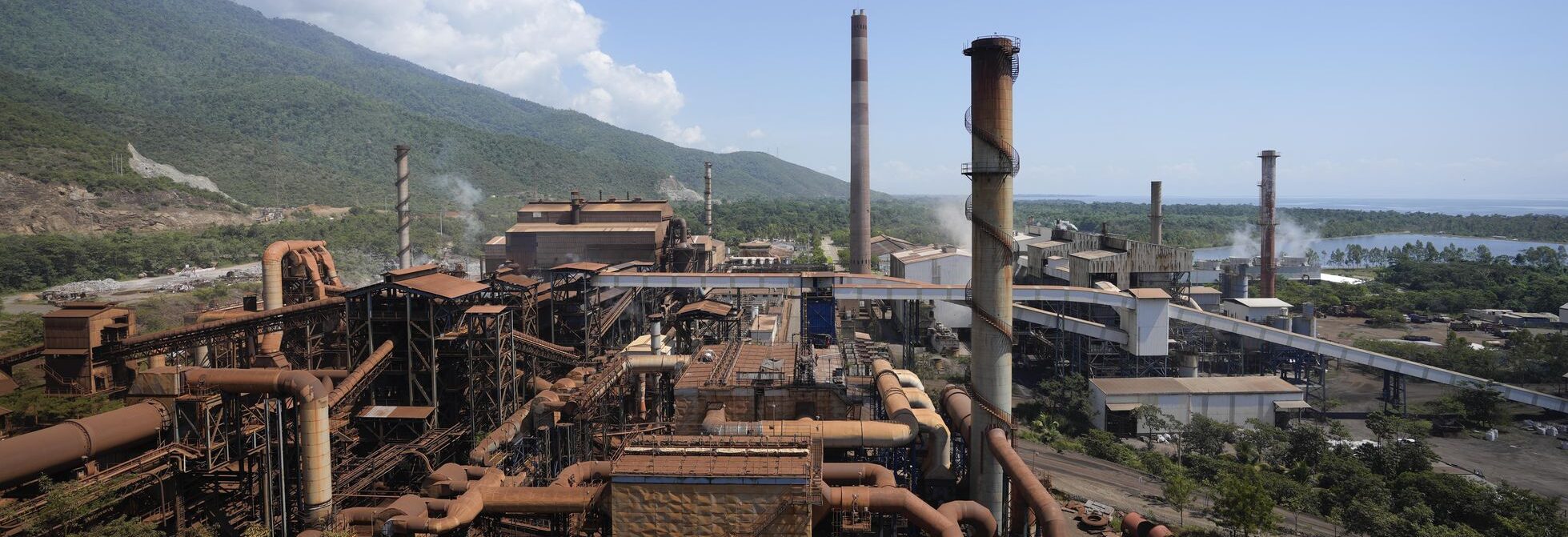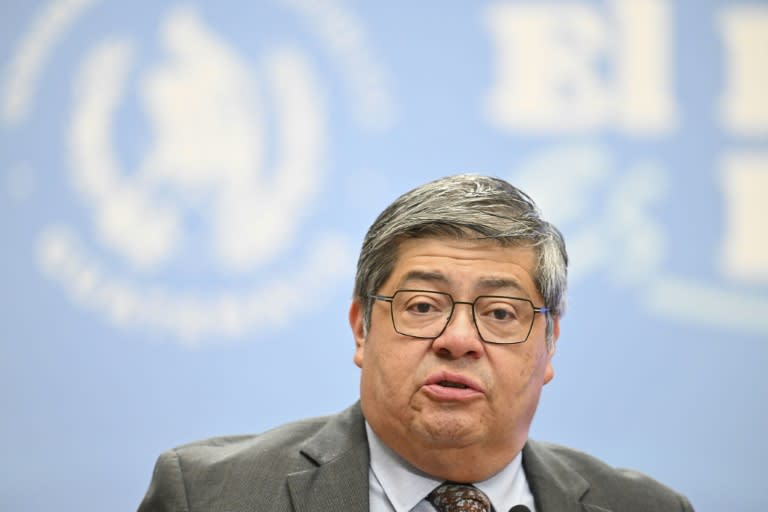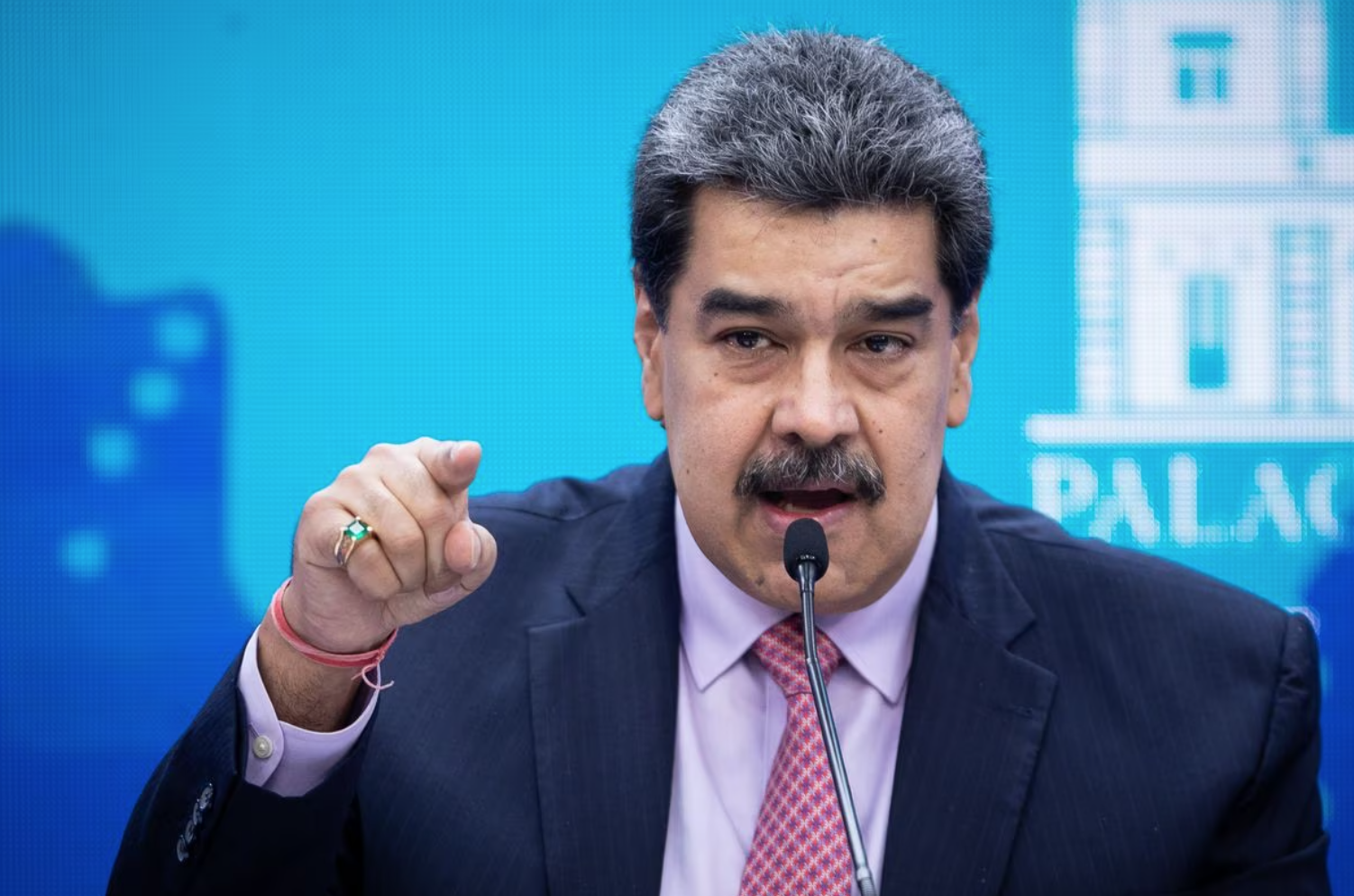Central America
Probe accuses Swiss mining firm of hiding Guatemala pollution

AFP
Two subsidiaries of Swiss mining company Solway Investment Group hid reports of pollution in an indigenous area of northeastern Guatemala, an international consortium of media companies said Sunday.
The “Mining Secrets” investigation — in which 65 journalists from 15 countries participated — also accused Solway subsidiaries Guatemalan Nickel Company (CGN) and PRONICO of intimidation and influence peddling.
The investigation run by the Forbidden Stories NGO “reveals the strategies that Solway has used to hide, in collusion with authorities, any element that could infer its responsibility in serious cases of environmental pollution.”
Solway has rejected the accusations, telling AFP in a statement it had reviewed the research in the investigation and found it to be “false.”
According to the investigation, one of those cases was the appearance of a large red slick in Lake Izabal, the largest in Guatemala and which adjoins the company’s nickel processing plant in Izabal department.
Both the company and the state blamed algae for the patch.
That sparked a protest from local fishermen, who blamed the miner for the slick. One protester, Carlos Maaz, was shot dead during a clash with police.
But investigators said documents and emails obtained by Guatemalan hackers “disprove official statements and confirm the fishermen’s intuition.”
According to the investigation, an internal PRONICO communication acknowledged that some mining deposits reached the lake “following heavy rainfall.”
The consortium of journalists, including some from Spain’s El Pais and Le Monde in France, said they had evidence that reporters were spied on, local community leaders were intimidated and manipulated, and the company had relations with a judge and “paid the police to end the protests.”
In October, a group of indigenous people blocked off the town of El Estor, where the processing plant is located, for several days, alleging that the company was failing to comply with a court ruling to cease mining.
The government and the company both insisted that the court ruling only prevented PRONICO from extracting from its Fenix mine but not from continuing to process minerals mined from other plants.
Guatemalan President Alejandro Giammattei sent military personnel to the area, while police used tear gas to clear protesters.
Local activists accused security forces of intimidation and carrying out raids.
Central America
Guatemalan police officer killed in mob riots over baby kidnapping

A police officer was killed during riots provoked by an enraged mob in a Guatemalan town following the kidnapping of a baby, the government reported on Wednesday.
The incidents began on Tuesday night and continued into the early hours of Wednesday in the town of San Vicente Pacaya, about 25 km south of the capital, according to Minister of the Interior Francisco Jiménez.
“There was an incident in San Vicente Pacaya where, unfortunately, a police officer died after being struck in the head with a stone. He passed away this morning,” Jiménez said in a press conference.
He explained that the unrest erupted following the arrest of two suspects in connection with the kidnapping of “a baby just a few months old,” including a woman with a criminal record.
Sports
Venezuela investigates 18 baseball players seeking asylum in Spain

The Venezuelan government announced on Wednesday that it is investigating the case of 18 baseball players who are “under the supervision of Spanish authorities” after seeking protection.
In a statement, Venezuelan authorities said they are working to determine whether this case involves “a possible human trafficking scheme,” though they have not provided any evidence of such a crime.
The Venezuelan government emphasized its commitment to protecting the country’s athletes while also denouncing the use of international legal frameworks by certain governments allegedly seeking to discredit the administration.
CNN reached out to Spain’s National Police for a response to Venezuela’s claims. According to Spanish authorities, the 18 young athletes—including two minors—arrived in Spain to participate in a series of matches but had already planned to apply for asylum. Authorities confirmed on Tuesday that they had begun interviewing the players to process their international protection requests.
The team’s coach addressed the situation in a TikTok video, refuting local media reports that he had abandoned the athletes. He asserted that the players chose to remain in Barcelona to secure the necessary permits to sign with other teams and that their decision was unrelated to any political motivations.
Sports
Filipe Luis debuts as coach in Copa Libertadores with Flamengo

A two-time Copa Libertadores champion with Flamengo during his playing days, Filipe Luis will make his managerial debut in the tournament this Thursday when the popular Rio de Janeiro club faces Venezuela’s Deportivo Táchira.
Placed in Group C alongside Táchira, Liga de Quito, and Argentina’s Central Córdoba, Flamengo starts as one of the favorites—a major challenge for the 39-year-old former player.
His early coaching career has been off to a strong start.
After retiring in 2023, Filipe Luis took over as Flamengo’s head coach on September 30. Just 41 days later, he won his first title, the Copa do Brasil. The year 2025 has already brought two more trophies: the Supercopa do Brasil, where Flamengo defeated Botafogo—current Libertadores and Brasileirão champions—3-1, and the Campeonato Carioca.
At 8:30 PM local time (00:30 GMT Friday), Flamengo under Filipe Luis will make its international debut at Estadio Pueblo Nuevo in San Cristóbal. Although Gerson, Uruguayan Giorgian de Arrascaeta, and Ecuadorian Gonzalo Plata are unavailable, the squad still boasts attacking firepower with Bruno Henrique and Everton.
-

 International5 days ago
International5 days agoSon of journalist José Rubén Zamora condemns father’s return to prison as “illegal”
-

 Central America2 days ago
Central America2 days agoU.S. Homeland Security Secretary urges Mexico to strengthen Guatemala border
-

 International5 days ago
International5 days agoMiyazaki’s style goes viral with AI but at what cost?
-

 Central America4 days ago
Central America4 days agoPanama police clarifies that Interpol alert for Martinelli is still pending
-

 International2 days ago
International2 days agoTrump urges Putin to reach peace deal
-

 Central America2 days ago
Central America2 days agoPanama grants Martinelli 72-hour extension to travel to Nicaragua
-

 International19 hours ago
International19 hours agoParaguay summons Brazilian ambassador over Itaipú espionage scandal
-

 International4 days ago
International4 days agoDeportation flight lands in Venezuela; government denies criminal gang links
-

 Central America17 hours ago
Central America17 hours agoGuatemalan police officer killed in mob riots over baby kidnapping
-

 Sports20 hours ago
Sports20 hours agoFilipe Luis debuts as coach in Copa Libertadores with Flamengo
-

 International20 hours ago
International20 hours agoMilei vows to make Argentina so strong that Falkland Islanders “choose” to join
-

 International20 hours ago
International20 hours agoElon Musk to step down as government advisor, per Trump insiders
-

 Sports19 hours ago
Sports19 hours agoVenezuela investigates 18 baseball players seeking asylum in Spain
-

 International20 hours ago
International20 hours agoICE agent’s arrest of suspect sparks controversy in Boston
-

 International20 hours ago
International20 hours agoÓscar Arias: Trump’s trade policies are a step backward















